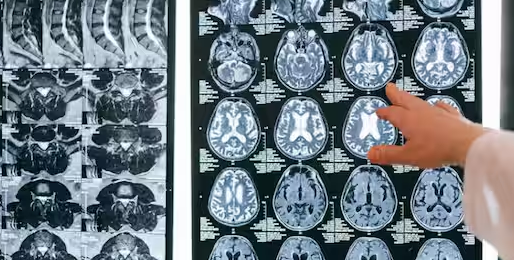What is the difference between PCOD and PCOS? Why is correct identification and treatment important for women?
- bySherya
- 08 Jul, 2025

What is the difference between PCOD (Polycystic Ovarian Disease) and PCOS (Polycystic Ovary Syndrome)? Often women consider these two to be the same, but there are some important differences between them, whose correct identification and timely treatment is very important.

Difference Between PCOD and PCOS: In today's stressful, imbalanced life and hectic lifestyle, many problems related to women's health are increasing. Especially the number of diseases related to hormonal imbalance has increased rapidly. Among these, PCOD (Polycystic Ovarian Disease) and PCOS (Polycystic Ovary Syndrome) are the most common but serious problems. Often women consider these two to be the same, but there are basic differences between them. It is very important to understand the difference between them for proper treatment.
PCOD is a disease related to hormonal imbalance, in which a woman's ovaries start producing more eggs than normal, which are not able to develop completely and gradually take the form of cysts (cyst is a sac or capsule like structure which can form in any part of the body). This causes irregular periods and sometimes it becomes difficult to conceive. The good thing is that PCOD can be controlled by changing lifestyle.
What is PCOS?
Dr Saloni Chaddha, a gynecologist at Safdarjung Hospital, explains that PCOS is a serious situation, which not only affects the ovaries but is also a metabolic and endocrine disorder. In this, the level of androgen i.e. male hormone increases in the body, due to which women may have problems like facial hair, excessive acne, weight gain, irregular periods and even infertility. It is difficult to get relief from PCOS only through diet or exercise and it may also require the guidance of a doctor and medicines.
The biggest difference between PCOD and PCOS –
The biggest difference between PCOD and PCOS is that in PCOD, women produce a little more eggs than normal but they are irregular, whereas in PCOS, ovulation (egg production) can sometimes stop completely. Due to this, the possibility of pregnancy in PCOS becomes even less. Apart from this, problems like diabetes, heart disease and blood pressure can also occur due to PCOS in the future.
Symptoms of PCOD and PCOS
The symptoms of PCOD and PCOS are quite similar. Such as irregular periods, weight gain, facial hair, hair loss, fatigue and mood swings. But if these symptoms persist for a long time, then it is very important to get checked by a doctor. Usually, blood tests, hormone checks and pelvic ultrasound provide accurate information about them.
What lifestyle changes should be made for PCOD and PCOS
To manage both these conditions, it is first necessary to improve the lifestyle. Exercising daily, eating healthy and balanced food, reducing stress and getting enough sleep helps in controlling both these diseases. Apart from this, some hormonal medicines, insulin resistance controlling medications and sometimes supplements may also be necessary on the advice of the doctor.
Often women take these symptoms lightly and delay treatment, which increases the risk of problems in pregnancy or metabolic diseases in the future. Therefore, it is important that women take their body's signals seriously and get tested and treated in time.





